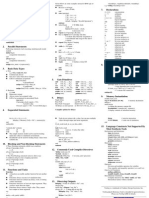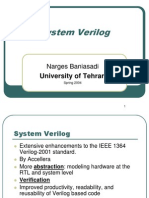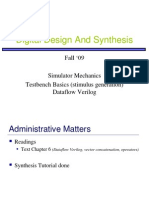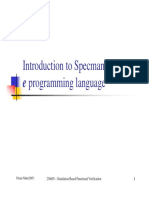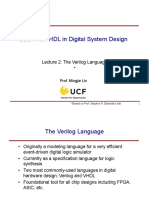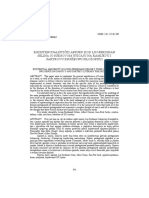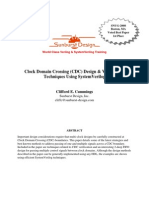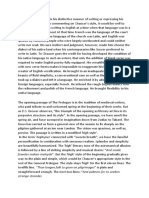0% found this document useful (0 votes)
33 views5 pagesSnippet Interview Questions
The document contains 25 SystemVerilog snippet-based problems, each focusing on different aspects of the language such as variable behavior, array types, assertions, and randomization. Each problem includes a code snippet followed by a question that prompts the reader to analyze the output or behavior of the code. The problems are designed to test understanding of SystemVerilog concepts and their practical applications.
Uploaded by
kumarsuriya725Copyright
© © All Rights Reserved
We take content rights seriously. If you suspect this is your content, claim it here.
Available Formats
Download as PDF, TXT or read online on Scribd
0% found this document useful (0 votes)
33 views5 pagesSnippet Interview Questions
The document contains 25 SystemVerilog snippet-based problems, each focusing on different aspects of the language such as variable behavior, array types, assertions, and randomization. Each problem includes a code snippet followed by a question that prompts the reader to analyze the output or behavior of the code. The problems are designed to test understanding of SystemVerilog concepts and their practical applications.
Uploaded by
kumarsuriya725Copyright
© © All Rights Reserved
We take content rights seriously. If you suspect this is your content, claim it here.
Available Formats
Download as PDF, TXT or read online on Scribd
/ 5









